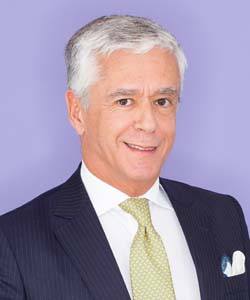Green Hub: To B or not to B Corp – that is the question law firms may want to ask themselves
Anna Bauböck looks at purpose-led business practice and why some firms seek B Corp status.
Businesses around the world are beginning to accept wider social and environmental responsibilities. This means extending the business’ purpose beyond merely seeking profits to look after stakeholders other than shareholders. Supporting local communities, protecting the environment, inclusive gender and race policies and the fair treatment of employees are all now part and parcel of including the notion of people and planet as stakeholders in corporate decision-making.
Companies depend on the trust of their consumers, clients, employees and suppliers, which means aligning social and environmental activities with business purpose and values is viewed as increasingly necessary in order to maintain this trust.
Fighting climate change and social and economic inequality will require a comprehensive people-centred green transition, and it is largely down to governments to make this happen. But businesses – including law firms – also have a crucial role to play in solving the climate crisis.
While democratically elected governments can be held accountable for their decisions, it is less clear how business can be. How do we determine which companies are putting in the work to ensure their businesses are sustainable and adhere to stated values?
Arguably, a shift towards an organisation’s purpose beyond profits requires a framework for ensuring transparency and accountability. One such framework is B Corp certification. Certified B Corporations (B Corps) are companies ‘verified by B Lab to meet high standards of social and environmental performance, transparency and accountability.’
Within the B Corp agreement, the business is legally required to consider the impact of decisions on all stakeholders. This means, crucially, that shareholder value cannot be the primary consideration but rather, is just one factor among many other stakeholders’ interests, including employees, society and the environment. In a nutshell, B Corp certification ensures a genuine commitment to becoming a so-called purpose-led business.
The B Corp movement began 15 years ago and there are now almost 5,000 B Corps globally in 79 countries and across 154 industries. The UK is currently the fastest growing B Corp market with over 700 B Corps. So far mostly consumer brands have taken the plunge and obtained certification, but some law firms have also signed up. Two such firms are Bates Wells in the UK and Abreu Advogados in Portugal.
Bates Wells is known for its large, dedicated charity and social enterprise team, so it is perhaps not a huge surprise the firm was the first UK law firm to achieve B Corp status. In fact, the firm was involved in drafting the legal test for B Corps and the establishment of B Lab in the UK.
At the time of publication, the only other law firm in the UK to achieve and maintain B Corp certification is Radiant Law. Mishcon de Reya – another UK firm with an established partnership with B Lab UK – became a B Corp in August 2021 but the following year decided to withdraw from the scheme. Stated reason was the difficulty of balancing sustainability commitments with professional obligations.
While Bates Wells and Radiant Law are not the only firms with a longstanding commitment to reducing their carbon footprint and a mission to make a positive impact by addressing social injustice and climate change, unlike others, their B Corp status ties the firms to these pledges.

As Angela Monaghan, the firm’s purpose & impact manager, explains, ‘Being a B Corp means that we have a tangible way to hold ourselves accountable and a framework that helps to keep us striving to go further and work harder to achieve these goals.’
Abreu Advogados is the first, and at the time of publication the only law firm with B Corp certification in Portugal. It too sees B Corp status as a useful framework for its business actions. The firm defines itself as ‘more than a legal services provider’, a ‘humanist project that aims to create a relevant impact both on society and in people’, according to Pedro Pais de Almeida, corporate, M&A and tax partner and head of the firm’s sustainability committee.
He elaborates: ‘We value transparency in all our actions and promote a corporate governance structure that is accountable to all stakeholders. By doing this we are building trust not only with our clients, but also with our professionals and external suppliers.’
For businesses that provide advisory services to clients, such as law firms, incorporating sustainability into a firm’s DNA helps to meet client demands as well as create business. Firms are arguably better able to advise clients on ESG matters if they themselves have implemented their own goals, and Bates Wells has used its experience of becoming a B Corp to establish a practice advising others on the process.
‘A number of organisations come to us to support them to become B Corps and to embed purpose in other ways if B Corp isn’t right for them’, says Monaghan.
Being a B Corp is, after all, about balancing purpose and profit, rather than entirely doing away with the latter. In fact, one of the requirements of B Corp certification is that the business competes in a competitive marketplace; it’s just that it needs to do this without compromising on sustainability.
As Monaghan confirms, ‘Aside from being the right thing to do, being a B Corp helps us to really live our values and means that we are able to attract and retain really excellent people, clients and partners.’

While Abreu Advogados promotes the values of the B Corp movement via its extensive ESG practice but does not have a dedicated practice advising clients on the transition, the firm has also ‘seen a growing interest from organisations as they seek a concrete response to the global challenges of sustainability and green economy.’
But will law firms themselves increasingly seek B Corp certification in their pursuit to embed ESG in their business?
Pais de Almeida thinks so. He argues: ‘Law firms are gradually adapting to the fast-paced world we live in and are increasingly aware that to be (and remain) competitive in a global market, it is critical to take a broader view on society’s challenges and have a hands-on policy to create a resilient future for everyone.’
Monaghan agrees that organisations, including law firms, which respond to the general shift in making business more sustainable as well as accountable ‘are likely to be more ready to face the challenges that we face as a society and to remain relevant to their future consumers, clients and workers.’
Ultimately, Monaghan would like to ‘see lots more firms certify’, and Pais de Almeida believes that ‘this new mindset’ will indeed ‘lead to more law firms certified as B Corp in the coming years.’
As more and more firms are trumpeting their ESG credentials, there will be a growing need to determine and verify who is truly ‘striving to do business in a sustainable way by putting the needs of people and planet on a par with profit’, as Monaghan puts it. B Corp certification might be the answer.


